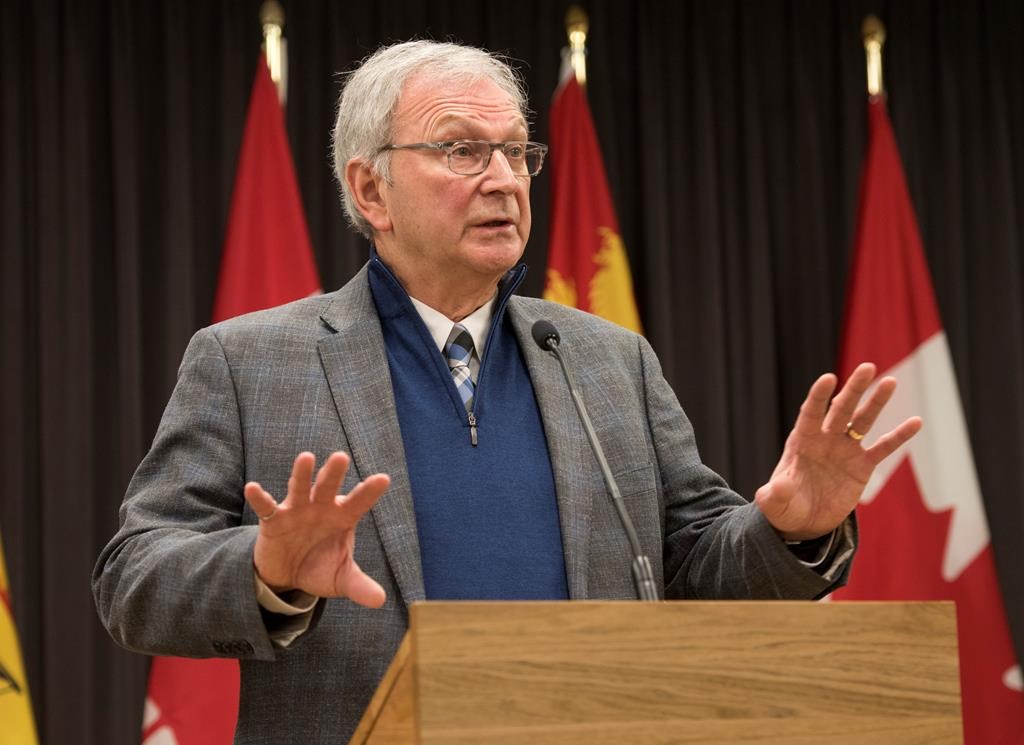New Brunswick has recorded three new cases of COVID-19 in the province, bringing the total number of confirmed cases in the province to 98, as of Saturday.

Officials have stressed that it’s important to continue following physical distancing protocols even if there is a low number of confirmed cases on one day.
“We are at the point where we are going to see more community transmission,’’ said Dr. Jennifer Russell, New Brunswick’s chief medical officer of health, in a press release.
“We are adapting daily to this changing health-care crisis. But the one thing that has not changed is the importance of people staying home.”

As of Saturday, the province said only four cases are believed to be community transmission, 57 are travel-related and 31 cases are close contacts of confirmed cases.
Six cases remain under investigation at this time.

Get weekly health news
Health officials say six people have been hospitalized as a result of COVID-19 with two of them having since been released.
Four patients remain in hospital with one in intensive care.
Questions about COVID-19? Here are some things you need to know:
Health officials caution against all international travel. Returning travellers are legally obligated to self-isolate for 14 days, beginning March 26, in case they develop symptoms and to prevent spreading the virus to others. Some provinces and territories have also implemented additional recommendations or enforcement measures to ensure those returning to the area self-isolate.

Symptoms can include fever, cough and difficulty breathing — very similar to a cold or flu. Some people can develop a more severe illness. People most at risk of this include older adults and people with severe chronic medical conditions like heart, lung or kidney disease. If you develop symptoms, contact public health authorities.
READ MORE: Students raise concerns over CERB qualifications
To prevent the virus from spreading, experts recommend frequent handwashing and coughing into your sleeve. They also recommend minimizing contact with others, staying home as much as possible and maintaining a distance of two metres from other people if you go out.
For full COVID-19 coverage from Global News, click here.





Comments